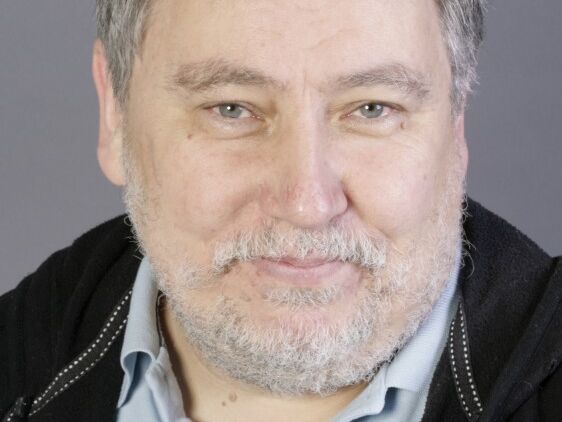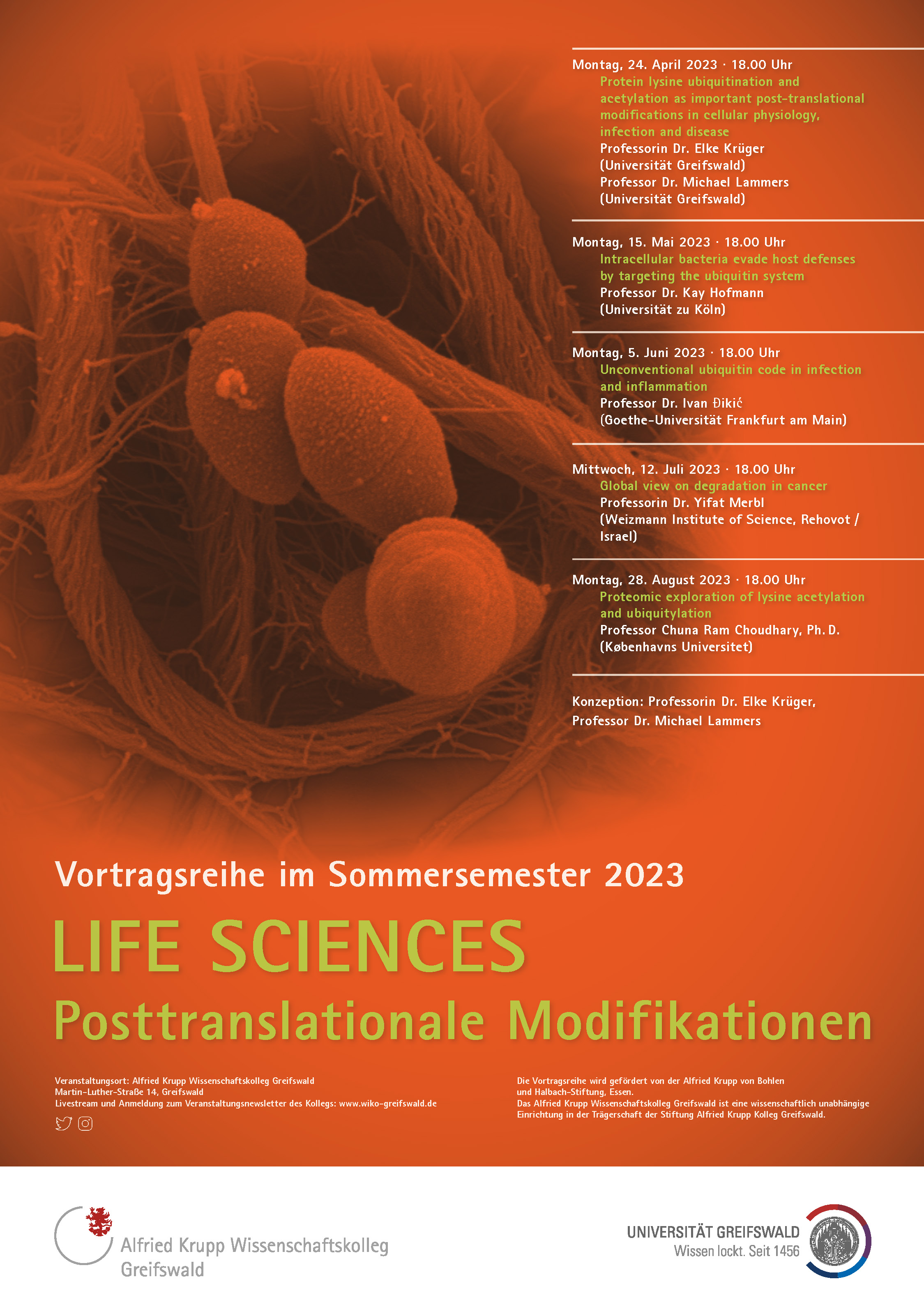In eukaryotes, protein ubiquitination regulates virtually every cellular pathway, including the defense against invading pathogens. Intracellular bacteria respond by injecting into the host cell a diverse range of effector proteins that target ubiquitin and thus prevent bacterial clearance via autophagy. Our own work focusses on bacterial deubiquitinases, the most abundant and arguably most important class of ubiquitin-directed effectors. By studying the genomes of bacteria with a particularly broad host range, we discovered a new effector class that makes ubiquitin removal irreversible and has interesting applications as a tool to study general aspects of ubiquitination.
After obtaining a Ph D in biochemistry from the University of Cologne (1992), Kay Hofmann pursued his bioinformatical interests as a postdoc at the Swiss Institute for Experimental Cancer Research in Lausanne (1994-98). Later, he joined the newly founded biotech company Memorec GmbH as head of bioinformatics (1998-2005) and continued this work at Miltenyi Biotec GmbH (2005-2012). Since 2012, he serves as professor for genetics and computational biology at the University of Cologne, where his group is studying the evolution of ubiquitin and cell death signaling pathways.
Moderation: Professor Dr. Michael Lammers
-------
LIFE SCIENCES with the main topic "Post-translational modifications"
-------
Organizational information
The Alfried Krupp Wissenschaftskolleg is offering this event live as a zoom meeting in which viewers can participate in writing via chat.
- We would be pleased if you provided your clear name when dialing into Zoom. Of course, you can also take part in the event under a pseudonym.
- A list of all participants can be viewed by all those involved throughout the event.
- During the lecture, the microphones of the spectators are all automatically muted so that no disturbing background noise is generated. You are welcome to turn on the camera of the spectators during the lecture.
- During the entire event, requests to speak or questions can be asked in writing in the chat.
Recording of the digital lecture
The digital lecture will be recorded for use in the college's media library. Only the speaker, his/her presentation and the moderator will be heard or seen in the recording. Video, audio or chat contributions are not recorded. A "REC" sign at the edge of the picture informs the participants.


